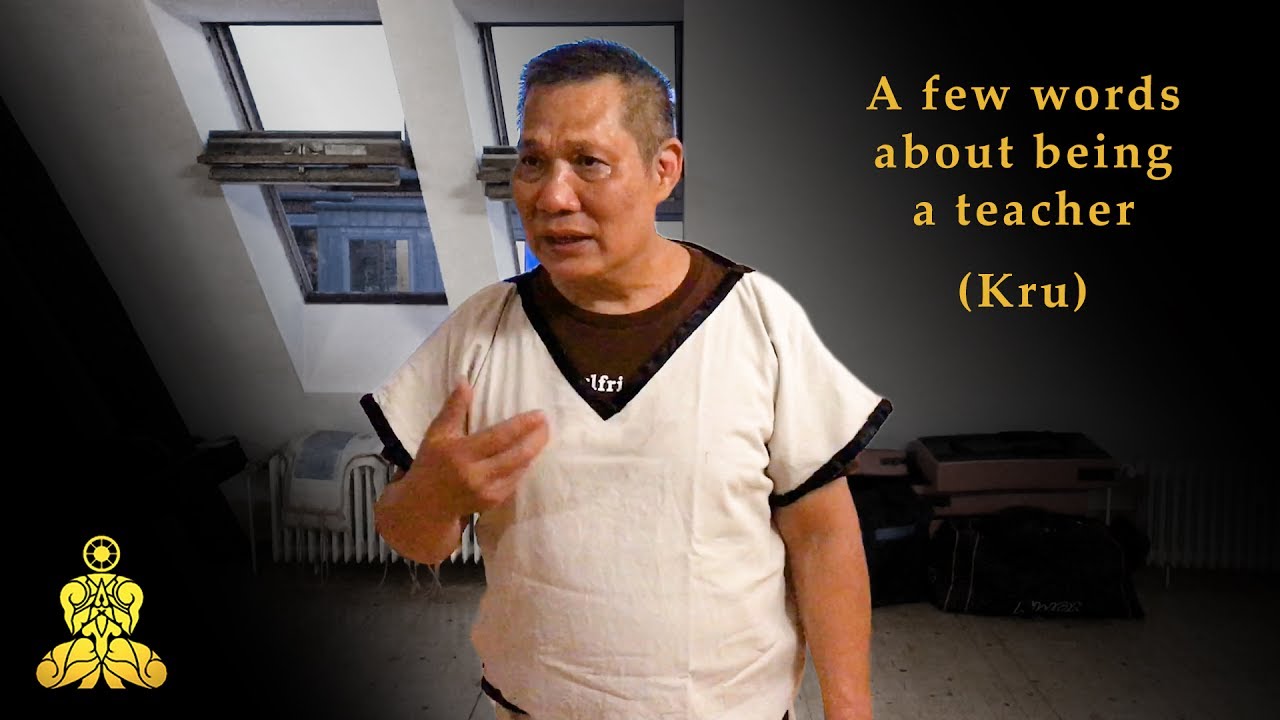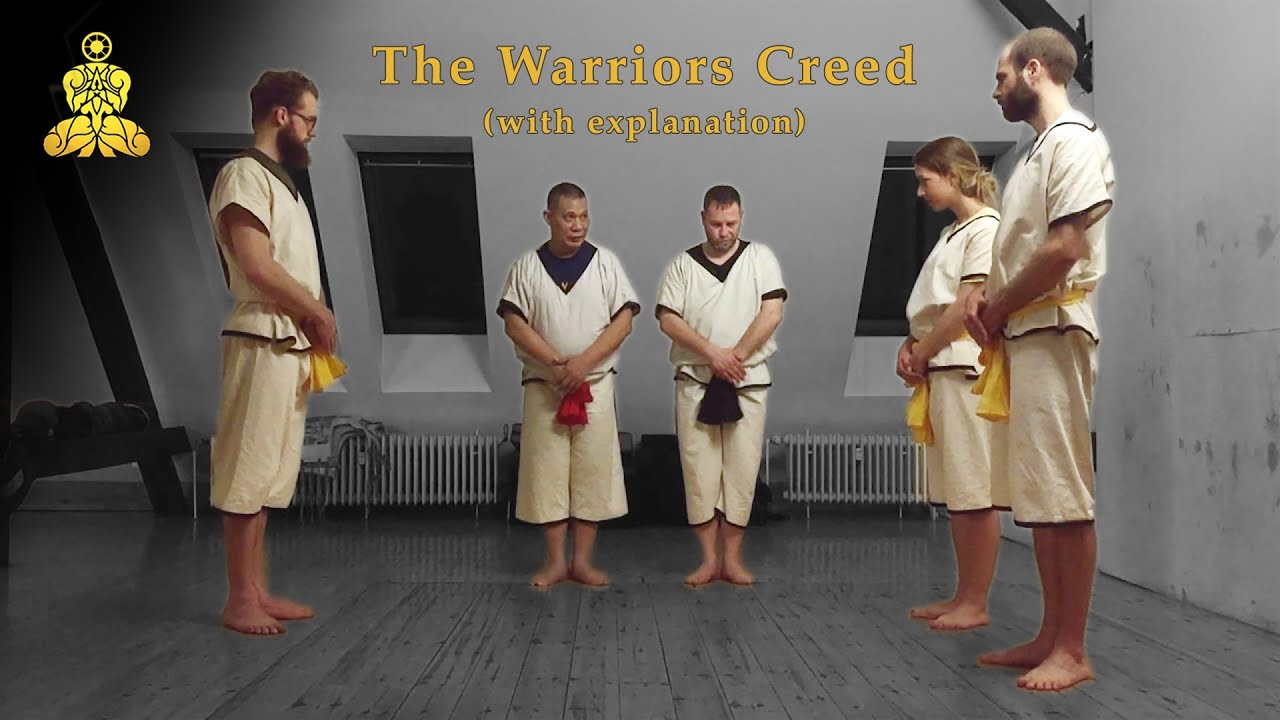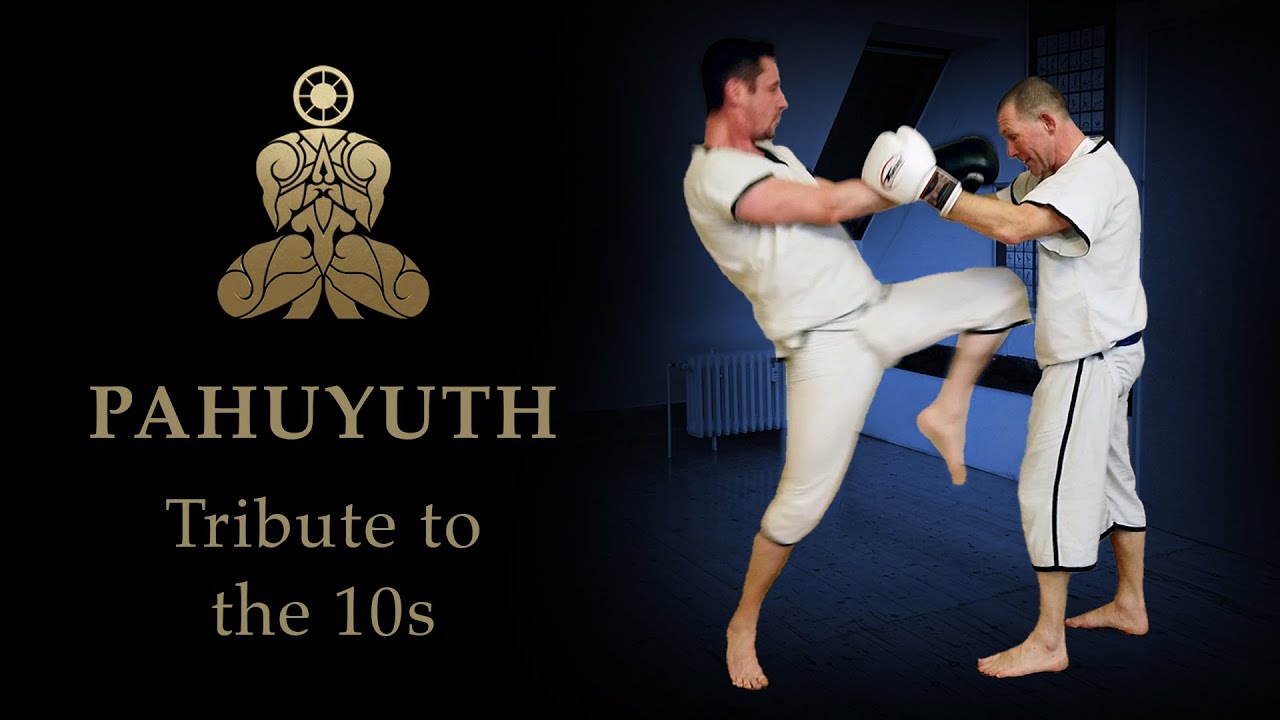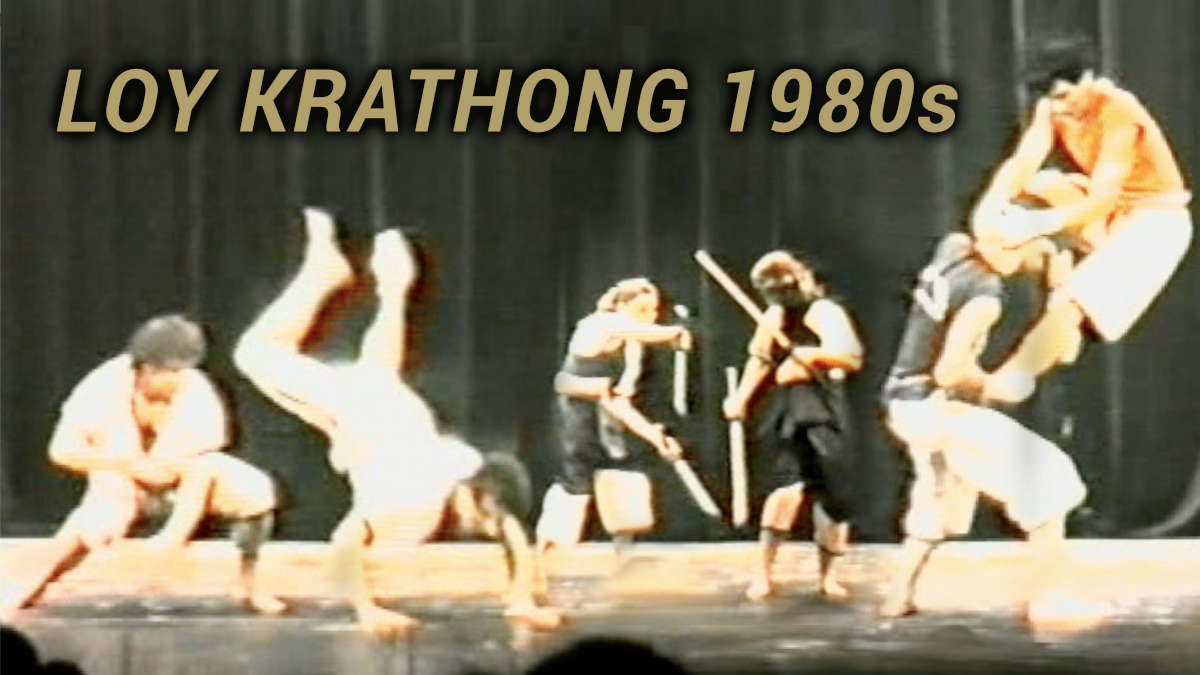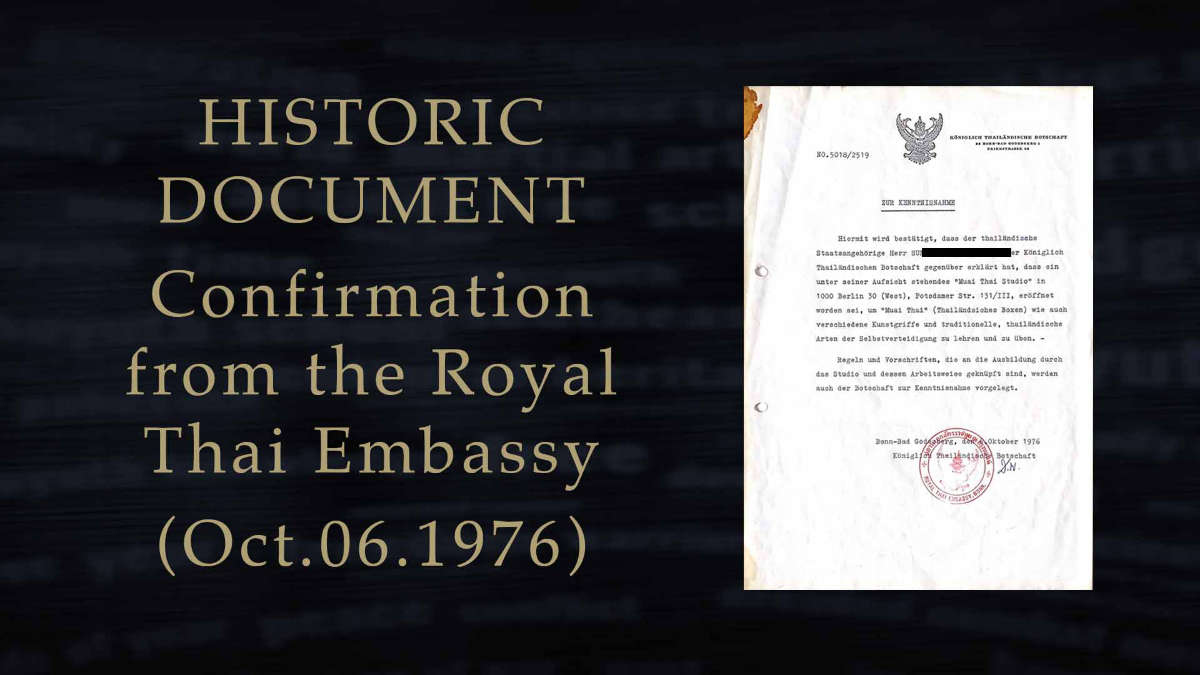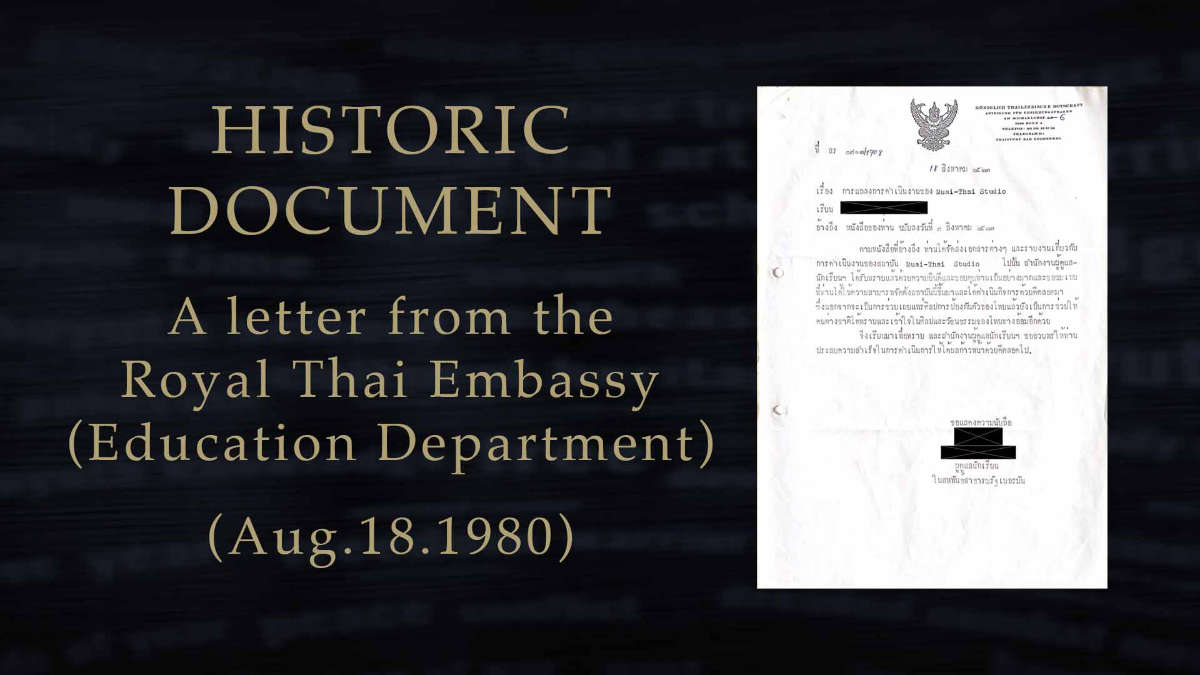Content
Historical origins
The term Ajan originally comes from the Pali word “ācariya” and only spread with the introduction of Buddhism. Similar to the Japanese “sensei”, this is a respectful salutation.
In Thailand, this term is used for teachers at colleges and universities, as well as for Buddhist monks (abbot) who have completed ten vassa (traditional retreat during the rainy season, see Buddhism).
More recently, the term Ajahn has been introduced in Muay Thai, Krabi Krabong and Muay Boran, among others, in order to create hierarchical structures, to enable control over those willing to learn and to serve economic interests (see: examination fees). This is a departure from the original meaning of the term.
The term Ajahn in the Thai language
In Thailand, a learned personality is basically referred to as Kru. An Ajahn, on the other hand, is a Kru who has turned students into such taught personalities (Kru). The cultural and social development of the monks, as well as the development of Buddhism in general, led over time to a linguistic mixture of both terms.
Since there were always Free-Warrior veterans who withdrew as monks in monasteries to protect themselves from flight and persecution, there were a number of monks for centuries who knew the Pahuyuth knowledge and secretly taught it.
Not always the differences between a monk, an abbot and a Pahuyuth teacher could successfully be made comprehensible to the students.
As a result, people began to use the terms incorrectly or even misuse them more and more frequently. This was especially common in the field of martial arts, where people pretended to be teachers or senior teachers in order to use their position for personal gain.
As a result, the trust and respect for teachers (Kru) and older teachers (Ajan) decreased, which can still be felt in Buddhism today. In addition, in many places the real meaning of what it means to be a teacher has also been lost.
Within the Pahuyuth lineage, the role of a teacher has remained unchanged – without any subordination of students, glorification of teachers or the establishment of a hierarchical structure.
Use in Pahuyuth
From a historical point of view, the appointment as “Ajahn” goes back to a royal reward ritual that is said to have already been practiced in the Kingdom of Nanjauw. The Free-Warriors and war veterans who had gone to war for the king and survived were rewarded with this title for their bravery. They were then exempted from military service so that they could carry out their teaching activities.
In the Pahuyuth itself, the use of the term “Ajahn” is not common, as there is no distinction between Kru (teacher) and Ajahn (senior teacher).
Pahuyuth is a martial art that emphasizes freedom and equality among people. All students and teachers are therefore in principle considered to be equal, regardless of their belt level, their experience or other characteristics.
The establishment of a hierarchical structure is fundamentally rejected by members of the Pahuyuth, which is a distinguishing feature compared to the cultural or religious customs of most Southeast Asian countries.
The Role of the Teacher in Pahuyuth
A red belt wearer (teacher) is and remains in the understanding of Pahuyuth always a teacher (Kru). Martial arts teachers are not considered sacred or even godlike in this martial art.
A Pahuyuth teacher is never a ruler or master over his disciples, but an experienced fighter who passes on his knowledge and, out of own conviction, chooses forgiveness over fighting (see Warrior’s Creed).
Instead of taking on the role of a “head teacher” (Ajahn), he acts more like a ferryman who once has crossed a dangerous river himself and can now help others to do the same by passing on his knowledge and experience.
A wearer of the red belt has gained awareness of himself by studying the essence of fighting.
He is aware that he is not a superhuman or worshippable personality, but simply has more knowledge. As a result, a teacher does not ask anyone to call him a teacher or to accept him as a teacher.
Consequently, the idea of recognizing someone as a teacher or respecting him as a teacher never originates from the teacher, but solely and exclusively from the student, who may or may not recognize the value of the knowledge imparted. It is therefore also said:
“The beauty of a flower is created by the perception of the observer.”
– Original text about red belt
Truly learned personalities, therefore, neither appoint themselves a teacher, let alone a senior teacher, nor do they proactively aspire to such a title.
The practice of calling oneself a fighter teacher (Kru) or a senior fighter teacher (Acharn) is therefore understood by members of the Pahuyuth as an expression of immaturity and self-glorification.
Recommended glossary entries

